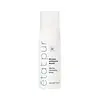What's inside
What's inside
 Key Ingredients
Key Ingredients

 Benefits
Benefits

 Concerns
Concerns

 Ingredients Side-by-side
Ingredients Side-by-side

Water
Skin ConditioningSodium Cocoyl Glutamate
CleansingSodium Citrate
BufferingSodium Lauroyl Sarcosinate
CleansingCapryloyl Glycine
CleansingCoco-Betaine
CleansingLactic Acid
BufferingZinc Gluconate
Skin ConditioningPropanediol
SolventPotassium Sorbate
PreservativeLaminaria Digitata Extract
Skin ProtectingCoco-Glucoside
CleansingGlyceryl Oleate
EmollientCarnosine
Skin ConditioningDisodium Adenosine Triphosphate
Skin ConditioningCitric Acid
BufferingTocopherol
AntioxidantHydrogenated Palm Glycerides Citrate
EmollientWater, Sodium Cocoyl Glutamate, Sodium Citrate, Sodium Lauroyl Sarcosinate, Capryloyl Glycine, Coco-Betaine, Lactic Acid, Zinc Gluconate, Propanediol, Potassium Sorbate, Laminaria Digitata Extract, Coco-Glucoside, Glyceryl Oleate, Carnosine, Disodium Adenosine Triphosphate, Citric Acid, Tocopherol, Hydrogenated Palm Glycerides Citrate
Water
Skin ConditioningSodium Laureth Sulfate
CleansingCoco-Betaine
CleansingSodium Lauroyl Sarcosinate
CleansingMannitol
HumectantXylitol
HumectantRhamnose
HumectantFructooligosaccharides
HumectantLaminaria Ochroleuca Extract
Skin ConditioningZinc Gluconate
Skin ConditioningPEG-90 Glyceryl Isostearate
CleansingSodium Chloride
MaskingCoco-Glucoside
CleansingGlyceryl Oleate
EmollientCapryloyl Glycine
CleansingDecylene Glycol
Skin ConditioningCaprylic/Capric Triglyceride
MaskingLaureth-2
CleansingAmmonium Glycyrrhizate
MaskingLysine Azelate
BleachingPyridoxine Hcl
Skin ConditioningUndecyl Alcohol
AntiseborrhoeicCitric Acid
BufferingDisodium EDTA
Sodium Hydroxide
BufferingWater, Sodium Laureth Sulfate, Coco-Betaine, Sodium Lauroyl Sarcosinate, Mannitol, Xylitol, Rhamnose, Fructooligosaccharides, Laminaria Ochroleuca Extract, Zinc Gluconate, PEG-90 Glyceryl Isostearate, Sodium Chloride, Coco-Glucoside, Glyceryl Oleate, Capryloyl Glycine, Decylene Glycol, Caprylic/Capric Triglyceride, Laureth-2, Ammonium Glycyrrhizate, Lysine Azelate, Pyridoxine Hcl, Undecyl Alcohol, Citric Acid, Disodium EDTA, Sodium Hydroxide
Ingredients Explained
These ingredients are found in both products.
Ingredients higher up in an ingredient list are typically present in a larger amount.
Capryloyl Glycine is created by adding an acyl group to glycine and caprylic acid chloride.
It is a cleanser due to its surfactant properties. Surfactants help dirt, oil, and other polluants be more easily rinsed away. According to manufacturers, Capryloyl Glycine also helps soften the skin and regulate sebum production.
Emerging studies show Capryloyl Glycine may inhibit hair growth. It may also cause allergies for some people. We recommend speaking with a professional if you have any questions about this ingredient.
Learn more about Capryloyl GlycineCitric Acid is an alpha hydroxy acid (AHA) naturally found in citrus fruits like oranges, lemons, and limes.
Like other AHAs, citric acid can exfoliate skin by breaking down the bonds that hold dead skin cells together. This helps reveal smoother and brighter skin underneath.
However, this exfoliating effect only happens at high concentrations (20%) which can be hard to find in cosmetic products.
Due to this, citric acid is usually included in small amounts as a pH adjuster. This helps keep products slightly more acidic and compatible with skin's natural pH.
In skincare formulas, citric acid can:
While it can provide some skin benefits, research shows lactic acid and glycolic acid are generally more effective and less irritating exfoliants.
Most citric acid used in skincare today is made by fermenting sugars (usually from molasses). This synthetic version is identical to the natural citrus form but easier to stabilize and use in formulations.
Read more about some other popular AHA's here:
Learn more about Citric AcidCoco-Betaine is the natural version of Cocamidopropyl Betaine. It is often derived from coconuts.
Coco-Betaine is a surfactant, meaning it helps remove dirt and oil from the skin.
Coco-Glucoside is a surfactant, or a cleansing ingredient. It is made from glucose and coconut oil.
Surfactants help gather dirt, oil, and other pollutants from your skin to be rinsed away.
This ingredient is considered gentle and non-comedogenic. However, it may still be irritating for some.
Learn more about Coco-GlucosideGlyceryl Oleate is the ester of glycerin and oleic acid. This ingredient is mainly an emollient and emulsifier.
Emollients soften and hydrate the skin by creating a thin film on top to trap in moisture. As an emulsifier, glyceryl oleate helps stabilize formulations by preventing ingredients such as oil and water from separating. According to a manufacturer, this ingredient helps helps thicken water-in-oil formulations, shower gels, and hair shampoos.
In some products, this ingredient may be used as a fragrance / perfuming ingredient. The scent of this ingredient is described to be "waxy".
Glyceryl oleate is created from oils rich in oleic acid, such as peanut oil and olive oil.
This ingredient may not be malassezia folliculitis safe.
Learn more about Glyceryl OleateSodium Lauroyl Sarcosinate is a cleansing agent and emulsifier. It is a surfactant derived from sarcosine, and a common source is coconut oil.
As a surfactant, Sodium Lauroyl Sarcosinate helps lift dirts, oil, and other molecules to be washed away. In leave-on products, this ingredient is used as an emulsifier. Emulsifier help prevent ingredients such as oils and waters from separating.
Sodium Lauroyl Sarcosinate is also commonly found as a foaming agent in shampoo, toothpaste, and shaving foam. It is amphiphilic, meaning it loves both water and fats.
Learn more about Sodium Lauroyl SarcosinateWater. It's the most common cosmetic ingredient of all. You'll usually see it at the top of ingredient lists, meaning that it makes up the largest part of the product.
So why is it so popular? Water most often acts as a solvent - this means that it helps dissolve other ingredients into the formulation.
You'll also recognize water as that liquid we all need to stay alive. If you see this, drink a glass of water. Stay hydrated!
Learn more about WaterZinc gluconate has antibacterial and wound healing properties. It is particularly effective against fighting inflammatory acne.
This ingredient is the zinc salt of the PHA gluconic acid. PHAs are gentle cousins to AHAs.